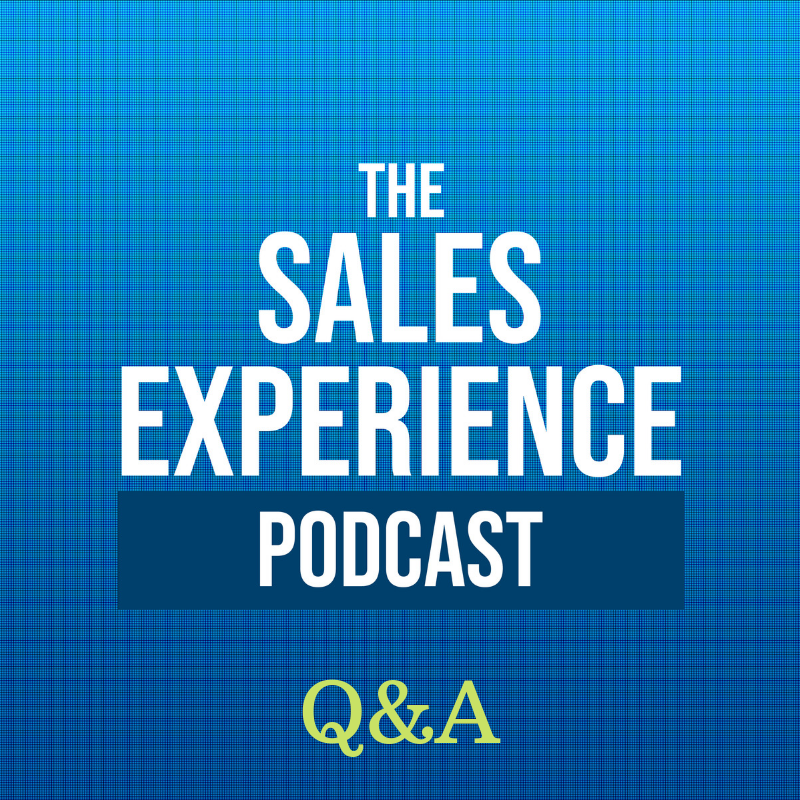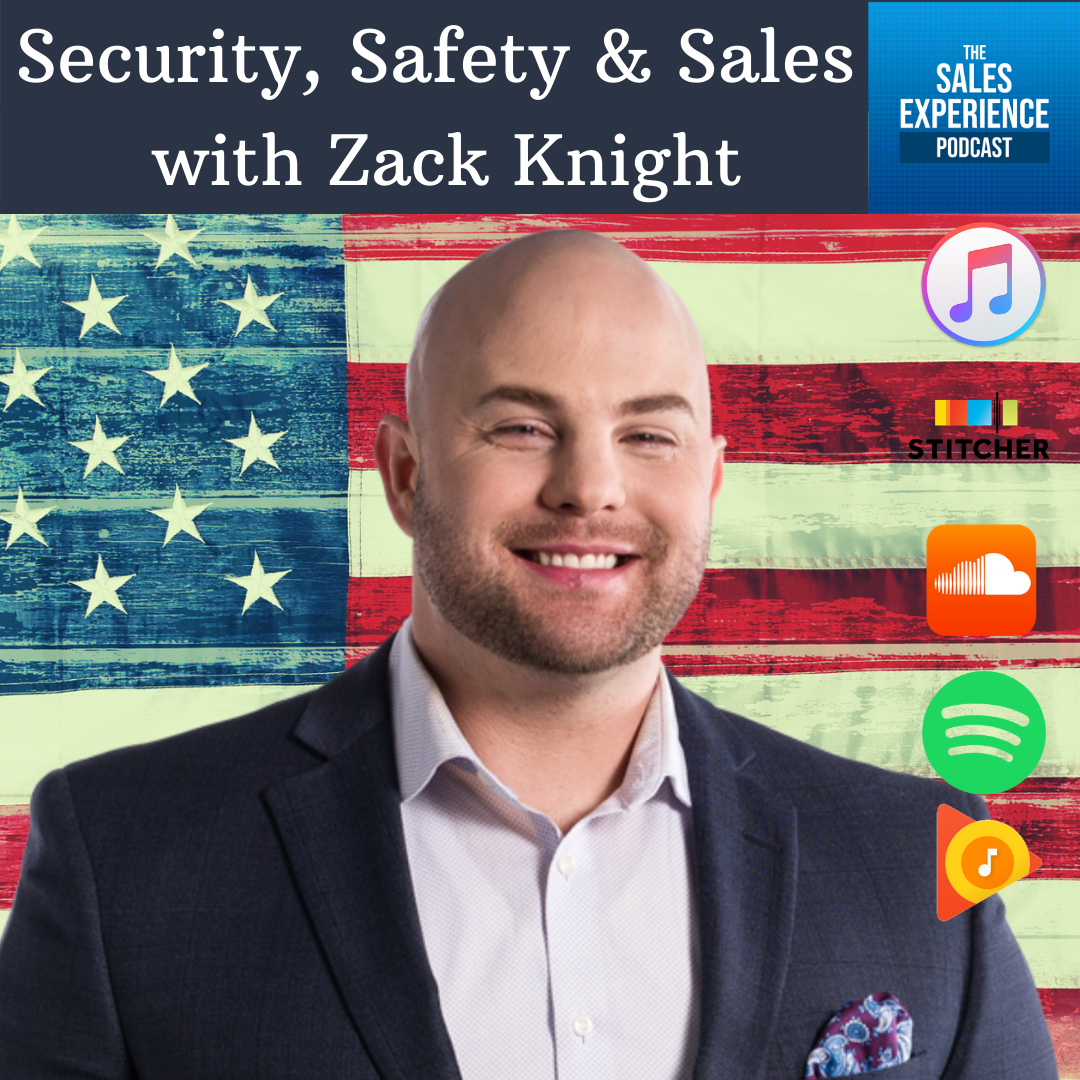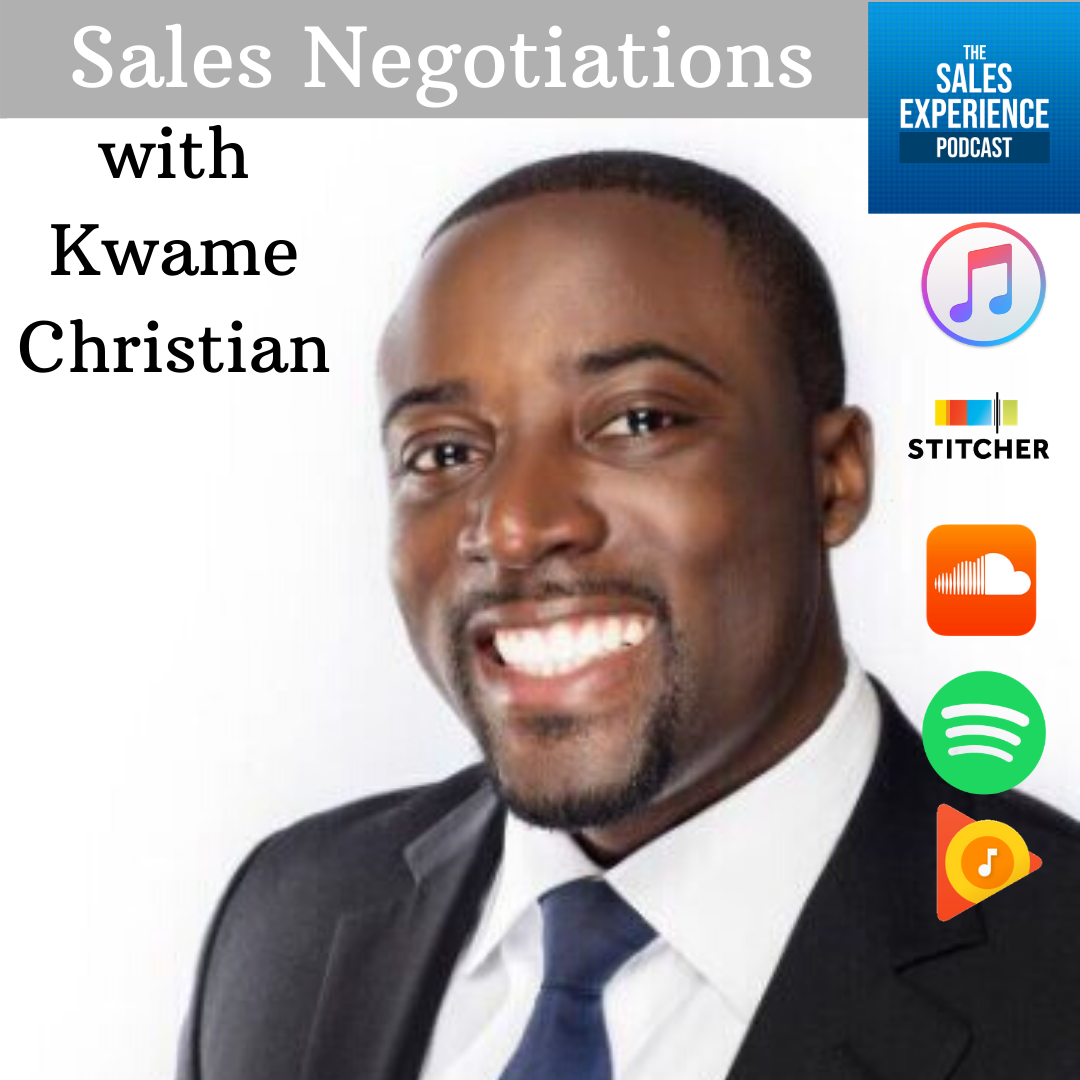Episode Transcript
A lot of people default to email as a communication strategy and it's really not it's not a good way to have a dialogue Yes, you could close some sales. Yes, you can do some things Your goal should be with the email to transition to some kind of call or meeting as quickly as you can And then once you have that meeting you can do more via email But you wanna avoid that.
Welcome to the Sales Experience Podcast, the show for salespeople and sales leaders where we help you create the ideal sales experience to generate raving fan customers. Grab your notepad and get ready for actionable steps you can use to change sales from a dirty word to an act of service for your prospects.
Now, for your host, Jason Cutter.
I am so glad that you're here. I'm so glad that you're taking the time to hopefully up a level, your sales career, or your sales team by listening to podcasts like this, hopefully you've subscribed, if not make sure to subscribe. And if you like this, leave a rating and a review. And in this episode, I am going to address some sales related questions to try to help everybody in sales.
Do more, be more, and sell more with their career and achieve their goals. Now, let's go ahead and jump into this episode. In today's one, I am going to address something that Abby Allen brought up to me in a LinkedIn message, talking about how in the state of the world today and trying to sell, how do you be respectful to the situation, current events, And still make deals happen.
The number one thing that I've said for months now with everything going on in the world is that if you provide something of value, something that helps your prospects move forward and achieve something they want right for gain, or help them avoid. Pain or troubles or challenges or get out of a bad situation, right?
If you have something that solves those things, helps them short term and long term, and there's value in what you're selling, where there's, it's more value than what it's going to cost that person as far as how they see it, relative value. Then there's nothing that should be stopping you from having those conversations.
And moving people forward towards buying from you again, if you have something of value, then there are people out there who are still looking for that thing to buy. If it's something you'd help, whether it's business to business to consumer, whether it's a product, whether it's a service, I see so many organizations.
Growing and improving and selling more now than they were before because they've gotten clear on their value. Their customers appreciate the value and now is the time. Now is always the time in my opinion. If you can help somebody either achieve something or avoid some pain, now is always the time. The key is, and this is the blend, and this is where people get worried in their mind and are afraid of selling or moving stuff forward towards a sale, right?
Towards the conclusion, is you want to balance Looking at being helping people with an opportunity and seeing the opportunities that are out there versus being opportunistic. Opportunistic to me is selling face masks for 25 a piece, right? Where it's a dollar's worth of cloth and people are marking it up to take advantage of the situation.
Opportunity is helping people who need masks buy masks. And doing that in the right way and then feeling good about it and then helping them achieve what they want. So there's nothing wrong with opportunity. Opportunity is always available, especially if you provide value, the key is to not be opportunistic and make sure your clients know that.
And if your intentions are in the right place. There's nothing that should be stopping you from hitting the ground running or continue to hit the ground running with phone calls, with emails, with reaching out, with networking and moving the right people forward in your transaction. If they're a good fit and you can help them, then it's really your duty and your responsibility to do that.
No matter what's going on in the world. If it's something you can help. Hey, it's Jason here. We'll be right back to the podcast, but first, are you ready to change the way you view your selling role and become a sales professional? Do you have a team that is hungry for new ways to improve and grow? If so, I have various coaching and consulting programs available that might be great tools to help you achieve your goals to learn more about the ways we can work together and to book your free sales power call, go to Jason cutter.
Let's get back to the episode this time. It's from Jonathan Hashinger. And his question was about trying to sell during this pandemic, this situation, everything that's going on is what about, he said, small techniques to read body language over zoom. And let's address that first before the rest of the question.
One of the biggest challenges that I had in my sales career is that I was initially raised in face to face, so it was about. If anyone called in, you set up a meeting, you get to know people face to face, that way you can read body language, look into their eyes, build trust, handle objections, deal with things on more of a relational level.
And then what happened years after doing that, I went into an environment where it was 100 percent over the phone. Which is amazingly different technique that can be challenging for a lot of people. Sure, we're used to using the phone, we're used to making phone calls. But to sell at a high level, to be able to.
Closed consistently without any face to face without meeting somebody in person without building that connection is a different challenge. It takes a different muscle now. Obviously, zoom helps bridge that gap because then you have video where you can see him in the video. And you can gauge things and see how distracted somebody is or interested, engaged.
Do they look puzzled? Do they have questions? All of that you can't do over the phone, which is so difficult. So if we look at the extreme, which is all the people who have been used to doing face to face sales, and now they're doing it over the phone only, not even zoom, but or video, but actually just over the phone, then what you want to do is you want to heighten those senses for listening. Active listening. One of the biggest keys is that a lot of people are too busy thinking about stuff or thinking about what they're going to say next when the other person is talking and then they're not listening. They're not listening for everything.
And when you actively listen, And shut off your brain so that you can just hear everything. It's like when you go outside and you shut off everything and you can hear nature. You can hear birds and frogs, crickets. You hear all these sounds like you're not used to hearing. You'll do the same thing over the phone.
When you shut off your brain from thinking about what you're going to say next and trying to strategize and trying to worry about your process or being distracted by other things. When you actually listen, you can hear how people talk, the things they say, the things they don't say between their words, between their sentences, the inflections in their voice.
And then you can really pick up on those items such that you can then be aware and then respond as if it was all face to face. And I think that's really the key is the more you can do that where you just listen. Now. When it comes to video calls and when it comes to zoom in particular, the key is you want to blend that.
You want to make sure you don't get too distracted with the video and watching the person. You still got to make sure you listen and you want to watch for those cues, but you want to listen to those cues as well. And you just want to work on that effect of zoom is a great tool because you can see if they're checking something else or if they're distracted.
They're not paying attention in ways that you can't always tell over the phone. And sometimes people will give you the same respect they would in person. Sometimes they see, they forget the video cameras there and they forget that somebody is watching and they're not respectful of just focusing on the conversation.
So what you want to do, and I always recommend is if you feel like somebody is drifting off and they're not coming into it, ask some kind of question, ask a question to help bring them back in the conversation, reset things, dig a little deeper. And the fascinating thing with this is that none of this matters unless you know why they want to buy from you.
If you're selling something and you don't know why they need or want what you're selling, none of this will matter. And the more you can uncover what they need and want, and then you can solve that or serve that with your product or service. The more you'll have their attention and none of this other stuff that I've been talking about will actually matter because they want what you have instead of you trying to convince them.
So hopefully that helps. Now, the second part of the question was how to effectively use email using DocuSign and being effective with those kinds of tools. I think the key is that a lot of people default to email as a communication strategy. And it's really not, it's not a good way to have a dialogue.
Yes, you could close some sales. Yes, you can do some things. Your goal should be with the email to transition to some kind of call or meeting as quickly as you can. And then once you have that meeting, you can do more via email, but you want to avoid that. When it comes to DocuSign, the biggest thing, and I see people shy away from this all the time, is before you send that out, you want to set the right expectations.
I'm sending you this. Here's what it's going to say, and you're going to need to sign this. And then we can get moving for your reasons. I see a lot of salespeople, maybe it's a contract. It's an invoice. It's something like that. They send the docu sign, hoping that will close the deal for them. And then they're worried about it because they don't actually have an agreement.
From the person, they want to move forward with that transaction. And if that's the case, then it's a weak close and you're not going to get a good response because you're hoping It's just going to close it for you, which means you're an order taker Which means you're hoping that person's just going to buy and you want to make sure you're not doing that before you send Out a docusign it should be clear that they're going to just sign that thing instantly because you've handled objections They know what the price is.
They know what the terms are There's no surprises when they get to page 14 of your contract They know what it's going to say and it's done like they're set. This is just a formality. Now you have their signature electronically and then you're good to go. If you're saving stuff for that contract to close it for you as I call the contract close that is dangerous.
And my guess is you're going to find that you lose a lot of deals. So hopefully that helps. Thanks again, Jonathan, for the question. And if you have a question, send me it through LinkedIn. You can go to jasoncutter. com. You can use any of the links in there to either reach me, find more resources, set up a free sales power call so we can talk about sales and I can see if there's any other ways I can help you with programs I have, processes, even my coaching that I offer.
Let me know. That's it for today. Remember that everything in life is sales and people remember the experience you gave them.
![[E231] People Buy From People They Like & Trust (Q&A)](https://episodes.castos.com/salesexperiencepodcast/images/TSEP-Cover-APQA-1.png)


